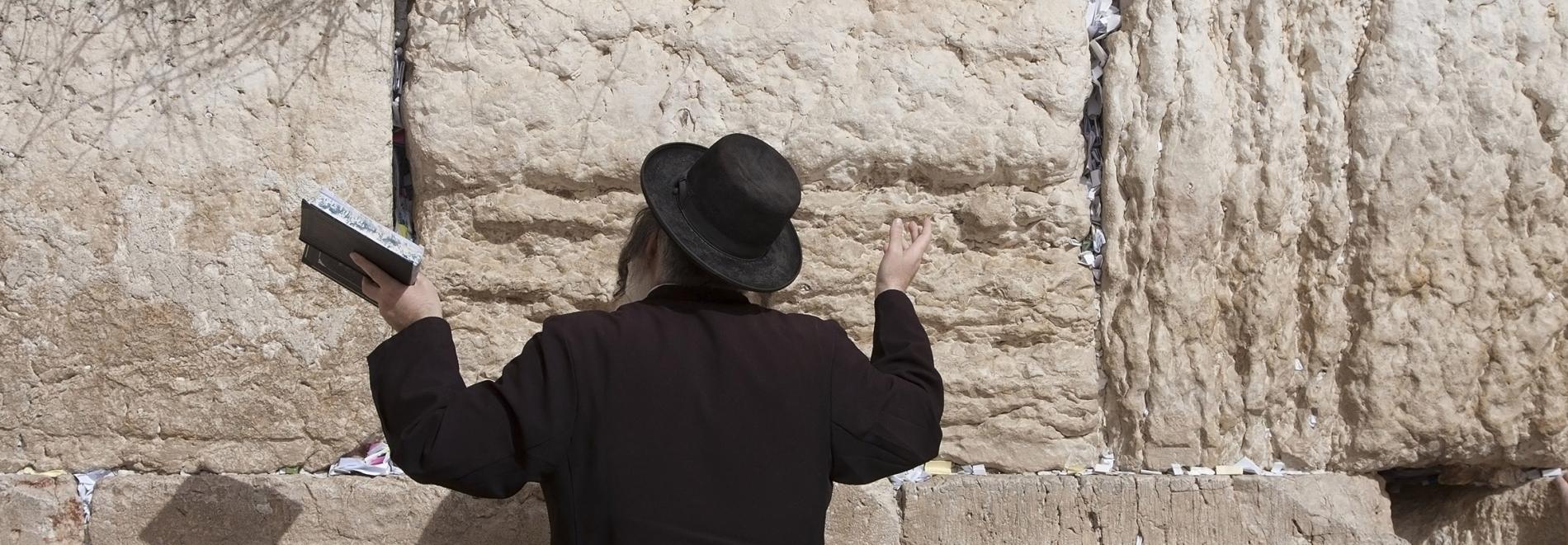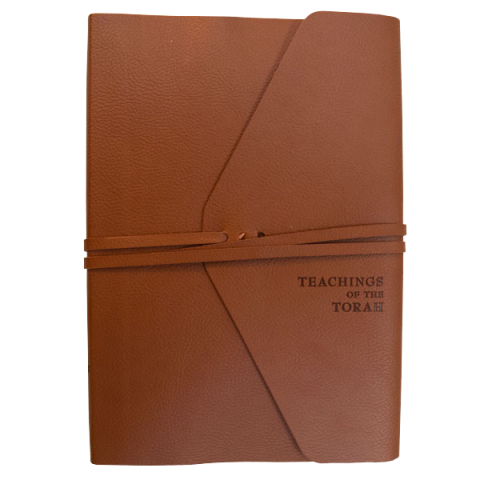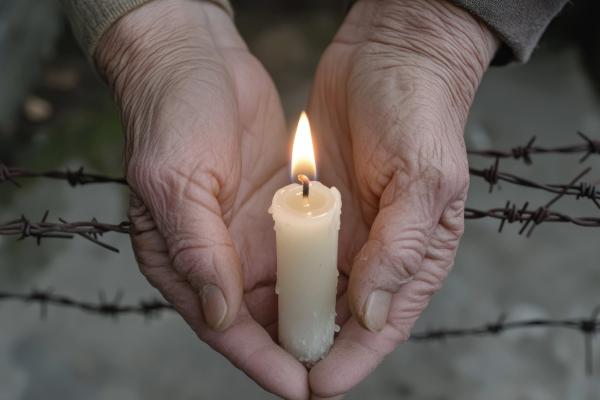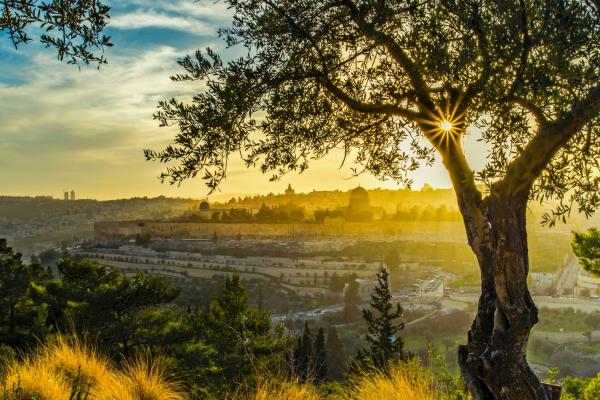Prayers and blessings are fundamental to Jewish worship, and therefore to worship in Messianic Judaism as well. The Siddur (SID-dur), the Jewish prayer book, contains prayers and blessings used as liturgy in daily and special services at synagogue.
Such liturgy is often misunderstood among Believers who may view standardized prayers as empty ritual. However, with any element of worship – whether prayer, song or Scripture reading – the liturgy is a tool to evoke worship. Worship occurs in the heart.
Inherent in any worship service is the risk of distracted participation when we sing, recite and listen without a truly worshipful attitude. The concept of the right mindset for worship is called kavanah (kah-VAH-nah) in Hebrew. It includes three aspects:
-
Directing your heart to focus on what you’re hearing and saying
-
Cultivating a personal experience with God around the content
-
Active worship, as opposed to merely participating in the motions of worship
The components of kavanah parallel God’s command to worship Him will all our heart, soul and strength (Deuteronomy 6:5). Jewish prayers and blessings used in Messianic Judaism are intended to awaken genuine, wholehearted worship and praise.
Messianic Judaism as a Movement is relatively young and is represented by many congregations throughout the world . As yet, there are no standardized adaptations of traditional Jewish prayers and blessings incorporating faith in Yeshua (Jesus) for Messianic Judaism. Generally, congregations or organizations adopt their own variations.
The following are some of the central prayers and blessings within Judaism and Messianic Judaism.
The Shema
Yeshua mentioned the Shema when referencing the greatest commandment. While it is not literally a prayer or a blessing, the Shema (Sheh-MAH) is the heart and soul of Jewish prayer. It is the declaration of faith for Jewish people. The entire Shema contains three parts: Deuteronomy 6:4‒9, Deuteronomy 11:13‒21, and Numbers 15:37‒41. The first portion includes the Shema and the V’ahavta (V’ah-HAHV-tah).
Shema means “hear, listen,” and is the first word of Deuteronomy 6:4. The Shema is spoken at least twice a day by observant Jews, at morning and evening services. Many Jewish people also say it at night before going to bed.
The Shema
Shema Yisrael, Adonai Elohenu, Adonai Echad.
Baruch shem k’vod malchuto l’olam vaed.
Hear O Israel! The Lord our God, the Lord is One.
Blessed is the name of His glorious kingdom for all eternity.
V’ahavta (Veeya-HAV-tah)
Yeshua also referred to the first verse of the V’ahavta in the context of being part of the greatest commandment (Matthew 22:36‒38). The V’ahavta is found in Deuteronomy 6:5‒9. The Jewish customs of tefillin (the-fih-LEEN) and mezuzot (meh-ZOO-zot) grew out of obedience to the commands of God contained within the V’ahavta.
V’ahavta
And you shall love the Lord your God with all your heart
with all your soul and with all your might.
And these words which I command you today shall be on your heart.
And you shall teach them to your children,
and speak of them when you sit in your house, and when you walk by the way,
and when you lie down and when you rise up.
You shall bind them as a sign on your hand and to be as frontlets between your eyes.
And you shall write them on the doorposts of your house and on your gates.
Aleinu
The Aleinu (Ah-LAY-noo) is a prayer recited near the end of every Jewish prayer service. The word “aleinu” means “it is our duty to praise.” The prayer directs the congregants’ hearts to their responsibility as Jewish people ‒ whom God chose and set apart ‒ to praise Him as the Master of all. It expresses gratitude for God’s covenant with the Jewish people and highlights His worthiness of all praise.
The Aleinu also looks ahead to the Messianic Age when God restores all things and when “every knee will bow” to Him. Those in Messianic Judaism hear the echo of these same words used by the apostle Paul in referring to Yeshua (Philippians 2:10.)
Aleinu
It is incumbent upon us to praise the Master of all, to exalt the Creator of the world, for He has made us separate from the nations and unique among the families of the earth. Our destiny is not like theirs; our calling is our task.
We bow down and acknowledge before the King of Kings that there is none like Him. For He stretched forth the heavens like a tent and established the earth. Truly there is none like our Lord and King.
As the Torah says, “you shall know this day and reflect in your heart that it is the Lord who is God in the heavens above and on the earth beneath, there is none else.”
We hope, O Lord our God, to soon behold Your majestic glory when all abominations shall be removed and all false gods shall be at an end.
Then shall the world be perfected under the rule of the Lord Almighty and all mankind shall call upon Your name. For to You every knee must bow and every tongue declare that You are God.
Reign over us soon and forever. May the kingdom of David’s greater son be established forever. For then shall the words be fulfilled, “the Lord shall be King forever,” and “The Lord shall be King over all the earth; on that day, the Lord shall be One, and His name One.”
Get the "Teachings of the Torah"
Study the Torah the first five books of the Bible through the eyes of a first-century disciple. “Teachings of the Torah” invites you into the questions, stories, and interpretations that prove the Bible is a living book.
Mourner’s Kaddish
The Mourner’s Kaddish (KAH-dish) was not originally written for mourners but later became the traditional prayer to recite after losing a loved one. Surprisingly, it is not a prayer seeking comfort from God. Instead, it praises God acknowledging His greatness and sovereignty. The fact that this particular prayer was adopted for mourning speaks volumes of the Jewish heart of worship and understanding that God deserves our constant praise, even in the midst of loss and suffering. Congregants within Messianic Judaism also embrace the practice of saying the Kaddish when grieving a death.
The Mourner’s Kaddish
Glorified and sanctified be His great name in the world which He created according to His will. May He establish His kingdom during your lifetime and during the lifetime of all the house of Israel, speedily, yes soon; and say, amen.
May His great name be blessed forever and forever eternally.
Blessed and praised, glorified and exalted, extolled and honored, adored and lauded be the name of the Holy One. Blessed be He who is high above, far above all blessings and hymns and praises and consolations which are spoken in the world; and say, amen.
May there be great peace from heaven and life for us and for all Israel; and say, amen.
He who makes peace in the heavenly realms, may He make peace for us and for all Israel; and say, amen.













